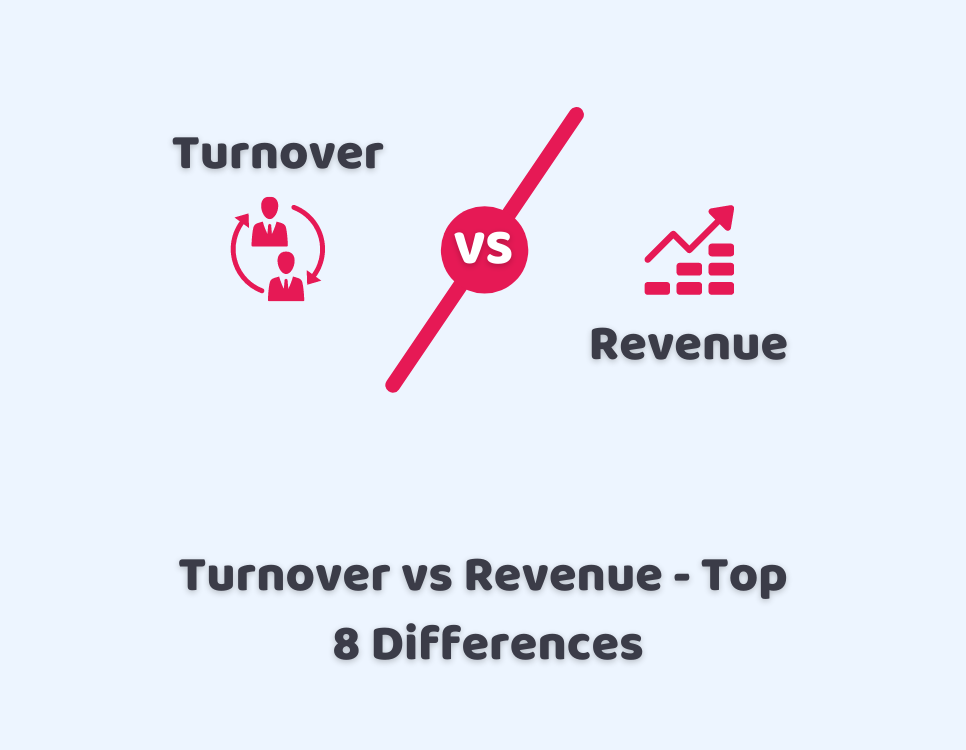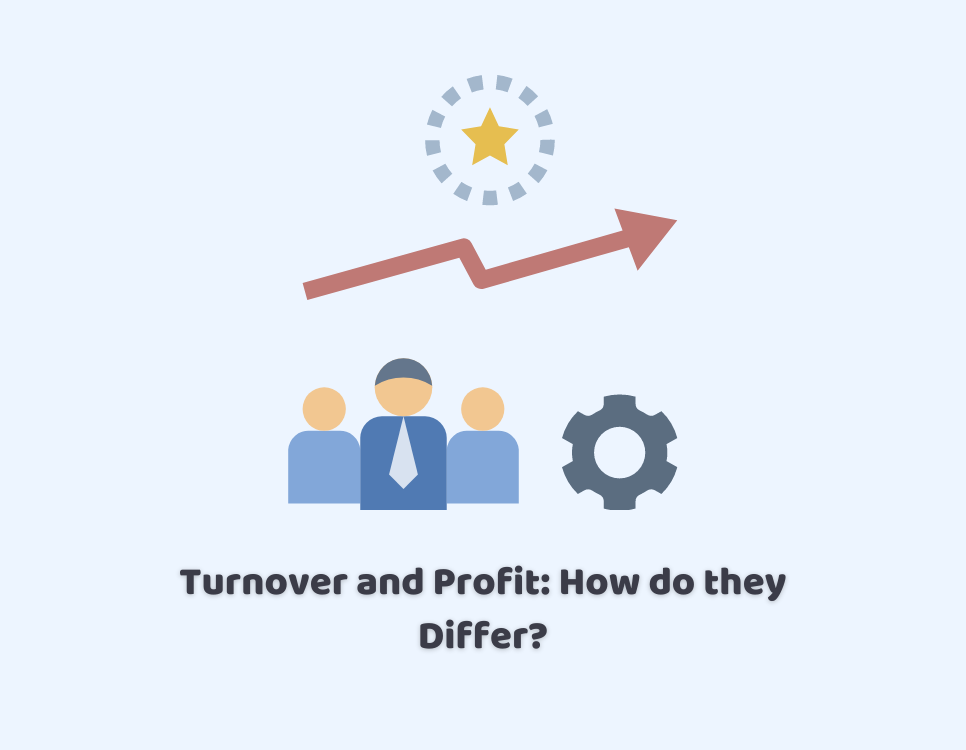
13/09/2021Business , Finance , Limited Company
In some contexts, “turnover “ and “revenue” are used interchangeably and often mean the same thing. Revenue is generated when assets turn over and bring in income by selling items and services. Contrarily, a turnover such as employee turnover refers to the business activities that do not necessarily generate sales. When a company brings in revenue through sales, the terms turnover and revenue mean the same thing. However, a business can have turnover without generating revenue, and it can bring in revenue without having a turnover. In this blog, you will come to know about the top differences between turnover vs revenue.
Contact our professionals at CruseBurke to grow your business revenue & turnover! Reduce your business burden and stress by letting us handle your financial worries!
Turnover vs Revenue – Top Differences
Turnover is defined by the Companies Act 2006 as the amount received by a business from the sale of items and services as a general business practice after deducting trade discounts, VAT, and other taxes. On the other hand, revenue is the amount of money a business receives by selling a number of items or services.
Although this term appears to be related to turnover, it is not. Revenue is not always obtained from the sale of items and services. Companies in the financial sector, for example, may produce revenue from investment capital that HM Revenue & Customs does not define as turnover. As a result, financial services businesses do not treat revenue and turnover in the same way. The top differences between the turnover vs revenue are as follows:
1) Definition
The money a company earns by selling items and services is revenue. On the other hand, turnover means that how many times a company earns by selling assets.
2) Meaning
The sum value of the sold items and services of a business is revenue. On the other hand, an income that is generated by trading items and services is known as turnover.
3) Types
Operating revenue and non-operating revenue are the two types of revenue, while cash, labor, and inventory are the three types of turnover.
4) Effect
The company’s earnings are influenced by revenue, while turnover has an impact on a company’s efficiency.
5) Importance
Revenue is one of the critical factors that determine the progress (growth) of a company. Therefore, it is vital to understand. On the other hand, turnover is essential to understand for making sure that no inventory is left idle for a long time and for managing production levels.
6) Formula
Revenue is the total amount of monitors sold multiplied by the cost (price).
Revenue = Total Sales – Returns
While on the contrary, turnover implies the total number of monitors sold (total sales) in a year. Following are some of the turnover formulas:
Total asset turnover – Net Sales divided by Average Total Assets
Cash turnover – Net Sales divided by Cash
Fixed Asset turnover – Fixed Assets divided by Net Fixed Assets
Unable to calculate revenue and turnover? Let us handle this!
7) Ratios
Revenue is used to work out profitability ratios, such as operating profit margin, net profit, and gross profit. On the other hand, the widely used turnover ratios are accounts receivable, accounts payable ratios, asset turnover ratios, sales turnover, and inventory turnover ratios.
8) Reporting
Revenue appears on the top of the Income Statement, and it is necessary to report while the turnover is not required to be reported but computed to help you better understand the financial statements.
Final Thoughts
We would conclude our blog by saying that while differentiating turnover vs revenue, many complexities arise. But for effectively running your business, these complexities are essential to understand. Although there is a difference between turnover and revenue, both terms are important to the business. For example, comparing revenue yearly helps businesses to know their financial position. On the other hand, a business can earn more if it turns over its inventory frequently at a fast pace.
Are you looking for an accountant to boost your revenue stream? Then, contact us right now! We are a team of chartered accountants in Croydon that will increase your revenue stream by keeping track of your finances! Reach us today for customized packages!
Disclaimer: This blog provides general information on the differences between revenue and turnover.


